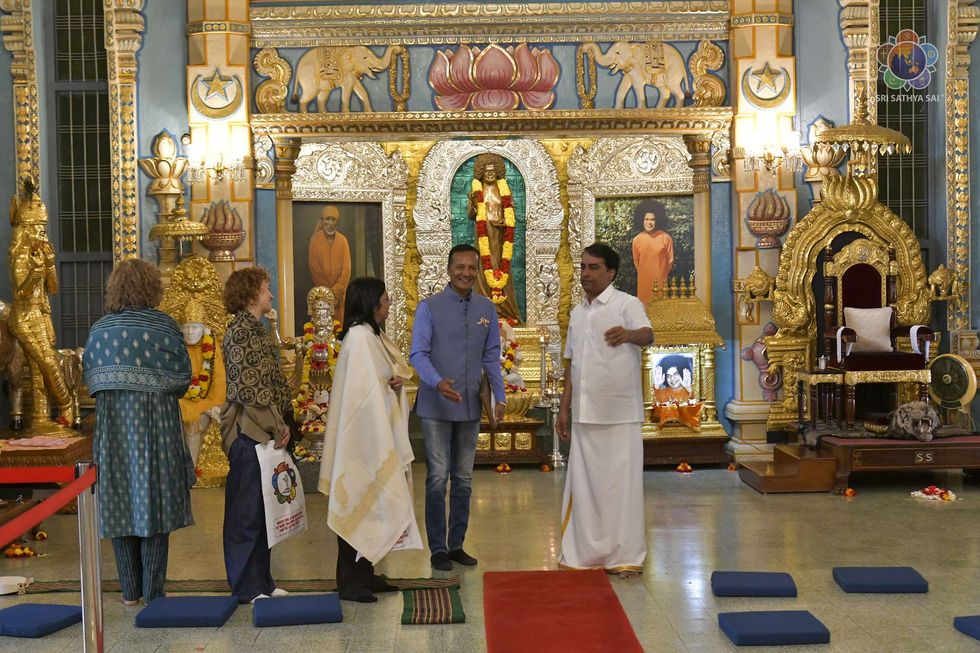IT is anticipated that more than 30 million people across the UK will watch England’s World Cup semi-final against Croatia on Wednesday (11), beating the 1966 World Cup final to become our most-viewed event of all time. As TV viewing becomes more fragmented with new technology, it’s not often that so many of us all share an experience at the same time.
England Manager Gareth Southgate himself has spoken of this capacity for football to bring us together. “When you come to a big tournament,” he said,” it is not just football fans, it is grandad, it is auntie, it is everyone supporting the team. For some reason they like these lads. Everyone wants to be behind the national team.”
This England team does seem to have something special about it. They’re young, exciting and seem to genuinely enjoy playing for their country. And it’s the most-diverse team ever to represent England at a World Cup, too: “a team that represents modern England,” as their manager described it. That, and the most exciting performances we’ve seen from the Three Lions in two decades, has made it a team that we can all get behind, celebrated with pride from rural towns to metropolitan inner cities. At a time when our nation can feel more divided than we would like, in this England team we have found something to unite us, across class, race, age or faith divides.
The question of whether you could be black (or brown) and British was answered a long time ago. Englishness has often been seen as more difficult, partly because we seldom talk about what it means except, as now, during sports events. Liberals agonise over whether England’s St George’s flag ‘looks a bit racist’. Perhaps, having seen it waved by so many jubilant fans of every ethnic background this summer, they might think again.
While a majority of Asians (60 per cent) do feel that the St George’s flag belongs to us all, it’s eclipsed by the England football team as the symbol of England that unites us. Three-quarters of Asians see our football team as a symbol of England that belongs to people of all races and ethnic backgrounds in England today.
Asian players have yet to break into English football at the elite level, so sadly we don’t yet see Asian faces lining up to represent the nation as we do in cricket, for example. It may just be a matter of time – Wolverhampton Wanderers’ Danny Baath, of mixed English and Pujabi heritage, did captain his side to promotion to the Premiership this season. One can only imagine how powerful it would be to have a Muslim player of Mo Salah’s ability pulling on an England shirt. Their time will come and many Asian youngsters will have been inspired by the team that represented England in Russia this year.
Englishness itself could be a “more in common” identity that unites us all in England. If a tiny minority of racists want to say otherwise, they will find little support among the vast majority of people across the nation. There was once, believe it or not, a time when some England fans wouldn’t count goals that were scored by black players. How would that view have fared in homes and pubs across the nation when Marcus Rashford stepped up to take his penalty against Colombia?
So Englishness can unite - but not if we only think about it when there’s some sport on. We have asked quite enough of Gareth Southgate already. Once he and his team come home, we need to take Englishness out of the stadium and embrace it as an identity that we can all share in England, all year round.





 Delcy Rodríguez visited Prasanthi Nilayam on October 26, 2024, to pay her obeisances to Sai Baba. (Photo credit: Sri Sathya Sai Media Centre))
Delcy Rodríguez visited Prasanthi Nilayam on October 26, 2024, to pay her obeisances to Sai Baba. (Photo credit: Sri Sathya Sai Media Centre))





